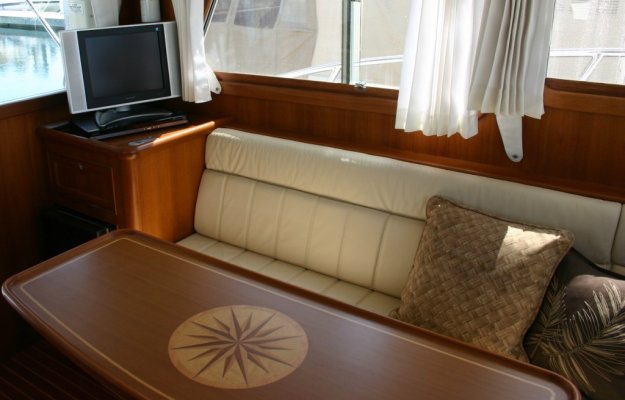timjet
Guru
- Joined
- Apr 9, 2009
- Messages
- 1,920
I'm in the preliminary stages of searching for a trawler in the 34 to 38 ft range. In searching I have found a couple of different configurations as refrigeration is concerned.
Since I'm looking for comfort and convenience (I currently have a sailboat and am getting a little tired of the work necessary to move the boat) I like those trawlers that have what appears to be a full or nearly full size fridge, similar to what are used in homes.
Not knowing much about refrigeration (I have a DC system on my 29' sailboat that I only run when the alternator is running so as not to drain the batteries)* do these rather large units run on DC, propane, AC or what. And are they practical to use without running the generator all the time or being hooked up to dock power.
Some boats have what I believe is a cold plate system that runs on DC power, is very efficient and is powered up for only a couple hours a day. Only down side to these units I believe is that they are like coolers and you have to dig around to find what you want.*
Any body want to start a discussion on the different types of refrigeration commonly found on trawlers? I live in the Tampa area where hot weather would probably require an efficient system.
Thanks,
Tim
Since I'm looking for comfort and convenience (I currently have a sailboat and am getting a little tired of the work necessary to move the boat) I like those trawlers that have what appears to be a full or nearly full size fridge, similar to what are used in homes.
Not knowing much about refrigeration (I have a DC system on my 29' sailboat that I only run when the alternator is running so as not to drain the batteries)* do these rather large units run on DC, propane, AC or what. And are they practical to use without running the generator all the time or being hooked up to dock power.
Some boats have what I believe is a cold plate system that runs on DC power, is very efficient and is powered up for only a couple hours a day. Only down side to these units I believe is that they are like coolers and you have to dig around to find what you want.*
Any body want to start a discussion on the different types of refrigeration commonly found on trawlers? I live in the Tampa area where hot weather would probably require an efficient system.
Thanks,
Tim

